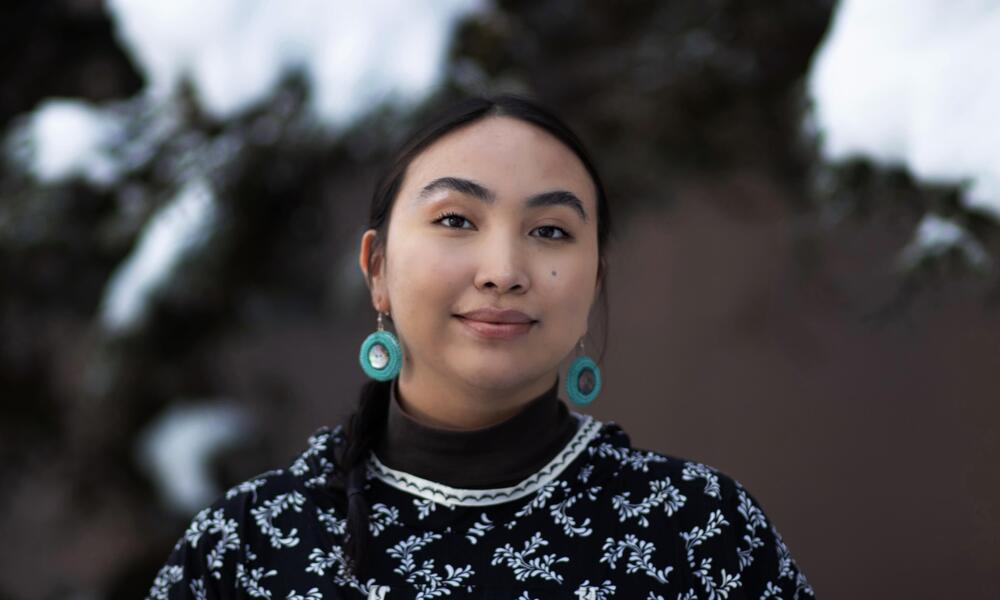
“I want to challenge young kids back in Alaska to think about what a scientist looks like,” Ropati said. “A scientist is a hunter. It’s someone who gathers berries and someone who’s able to really understand the ecology in the tundra in Alaska, to survive in the Arctic.”
Asked about how she balances her studies, advocacy, and personal life, Ropati smiled and answered by centering her relationship with her community.
“Knowing that home will always be there comforts me. I’ll always have a place to return to. I’ll always be able to go back to the land and gather food, be there with my community, sing, and dance,” she said.
Despite everything they have faced, Ropati said, Native communities are resilient and continue to fight for their lands, to be joyful, and to take care of each other.
“When we’re able to create a space where our kids are able to dream beyond what they’re told to be, and beyond a colonial construct, that is rooted in climate justice,” she said.
